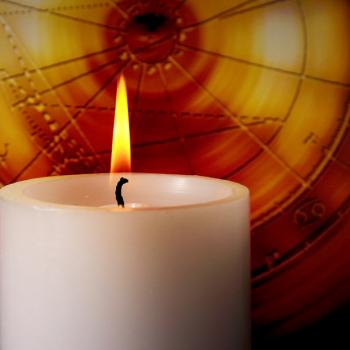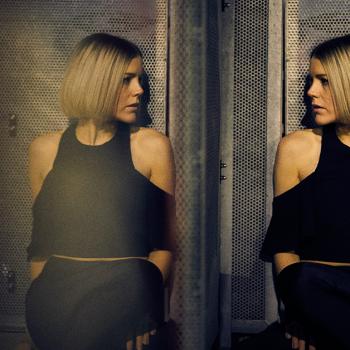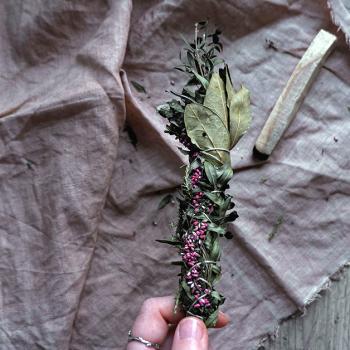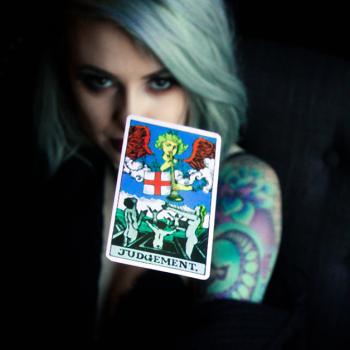I recently started a new project with an esteemed colleague, Corbie Mitleid, called “Tea and Crones.” This broadcast airs every Sunday evening at 5:00 pm Pacific time and 8:00 pm Eastern Time. Since Corbie and I are both of a particular age, we talk about different subjects from a crone’s perspective. I enjoyed sharing our previous topic with you in a post called The Top 10 Misperceptions About Me as a Witch. This week, we discussed another subject that I wanted to share: Judgment Versus Discernment.
Is there a difference?
We see it everywhere. “Only God can judge me.” “She’s so judgmental!” “Throughout social media and today in general, “judging” someone falls into a category of detrimental behavior. But when does a lack of judgment interfere with our energetic, emotional, and spiritual well-being? What is the difference in being judgmental versus being discerning? Are they different words for the same action?
Judgment has a different birthplace
Yes and no. While the outward appearance and results may seem similar, the origins of discernment and judgment are very different. In their most genuine presentations, judgment and discernment are born from specific and different motivations.

External and internal
Judgment is response to something external, focused on others. It comes from a position of superiority and condemnation. It stems from a drive to “fix” other people or if not to fix, to at minimum identify and showcase their flaws.
Discernment, however, comes from an internal place of self-love and self-awareness. It identifies what does and does not fit into a construct of healthy emotional living for us.
Old programming
Most dominant religions encourage us to recognize “good” and “bad” people, those who will and will not receive afterlife rewards. Society coaxes us to break into factions, to have cliques and clubs identifying who is and is not acceptable. Even within Paganism, arguably one of the most inclusive umbrellas of spiritual belief, there is in-fighting and identifications of who is right and wrong, who is and is not entitled to their claimed spiritual identity.
Judgment says, “You are bad or flawed in some way and so I cannot love you.”
Discernment says, “I love you, but I value my emotional and spiritual health, therefore, I must set boundaries and limit my exposure to you.”
Judgment closes us off by labeling someone as “bad” or “the other.” It often triggers a fear response or a “fight or flight” mentality, conditioned into us by prior experiences.
Discernment loves with open arms, acknowledging diversity and at the same time, honoring our own healthy boundaries. Corbie uses the example of her winter coat. She says (paraphrasing), “My winter coat is not right for me in July, but that does not mean I despise it or never want to see it again. It just means that it is not what fits into my life path right now.”

Judging the journey
Judgment criticizes the journey another person is taking.
Discernment acknowledges and honors a person’s journey as valid for them, but also leaves room for us to say that it is not compatible with our journey. It says, “I do not reject your path for you, but it is incongruent with my happiness and spiritual well-being.” By this assessment, judgment closes you off, but discernment opens you up.
Judgment does not usually operate alongside compassion.
Discernment is hand-and-glove with self-compassion and the ability to discern what causes us healthy spiritual challenges rather than ongoing disfunction and unhealthy interpersonal dynamics.
Judgment is past-tense
Judgment lives in the past, responding to conditioned triggers, biases, prejudices, insecurities, gossip, and competition. We are judgmental when we work from a place of ego and viciousness. We are discerning when we study, recognize, and honor how different influences affect our spiritual well-being.
Discernment lives in the present and future. It empowers us and guides us to take accountability for the energies around us. Discernment makes us responsible for our mental and emotional health and encourages us to acknowledge our limitations as well as our strengths. It allows us to release with love the relationships that drain our energy and create discord in our spirits.

Judgment and aging
Gerontology studies tell us that as we age, we begin to establish our “caravan.” The caravan is the group of solid relationships that will stay with us through the end of our lives. Automatically, we transition from the younger approach of collecting friends by quantity to the older perspective of focusing on a handful of deep, quality relationships. This happens through discernment, but also by natural attrition. Simply put, as we age, fewer of our friends survive us.
While this might feel grim, the offset is that as we age, we care less about the judgment of others. We are more confident in who we are and less likely to adjust our behaviors to accommodate others. It is natural to do this in the parts of our life set for attracting a partner and parenting. Once we “age out,” however, our interest in pleasing others, competing with social ideals, and reworking our lives for the benefit of others no longer holds sway.
This does not mean that all elders transition into discerning, wise beings. Not by a longshot. It does mean that life naturally gives us an opportunity to embrace that shift and not be hateful, ego-driven judgy bitches.
Likewise, this does not mean that younger people are incapable of working from a position of discernment rather than judgment. All of us can make kinder, better choices while protecting our emotional and spiritual health. Most of us could stand to do periodic audits of where we are in this process and make adjustments as needed.
As Ram Dass once famously said, “We’re all just walking each other home.” That does not mean we have to walk arm-in-arm, hold hands, or even take the same path home. We all just have to get there, acknowledging that others are getting there too.

















